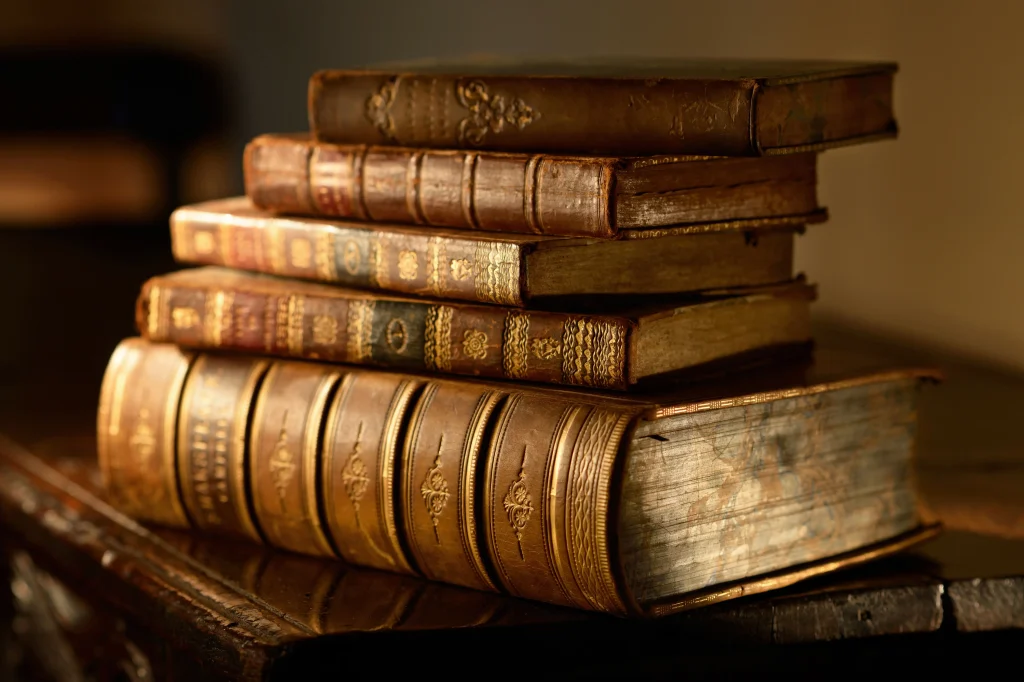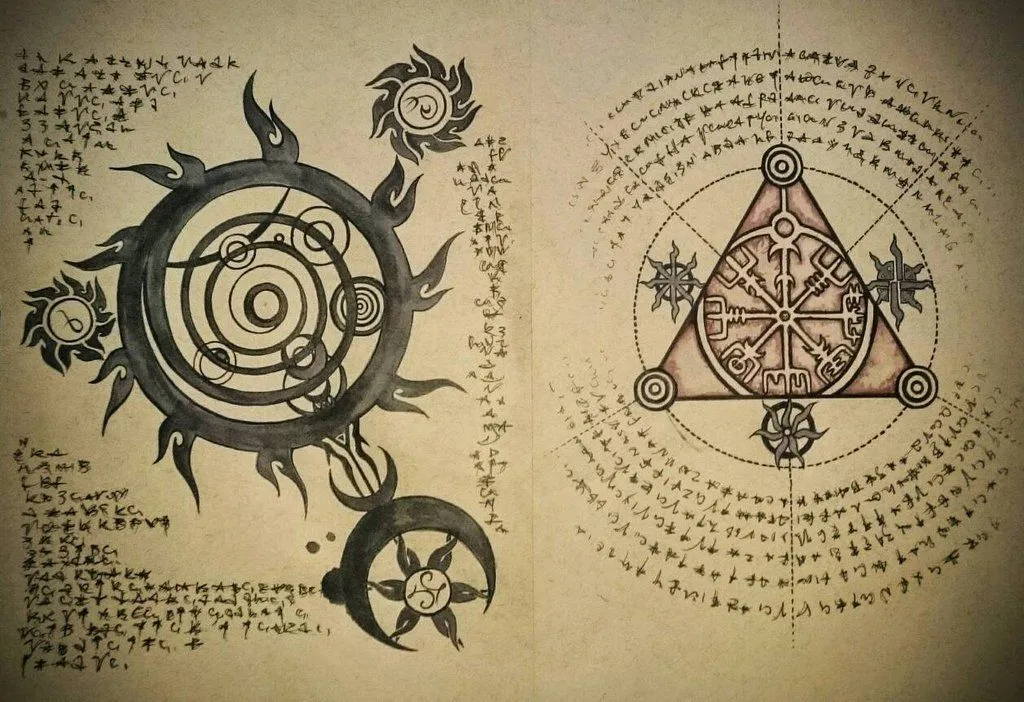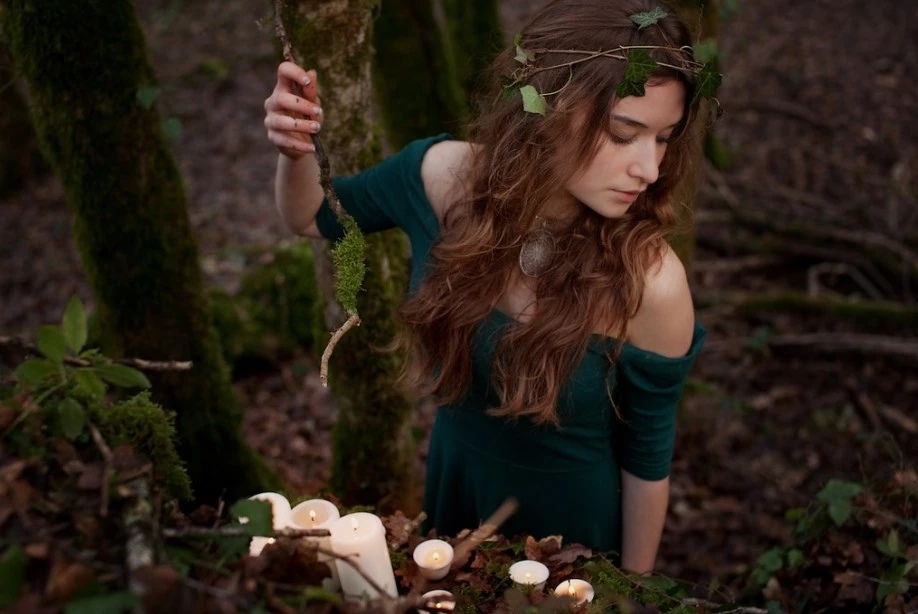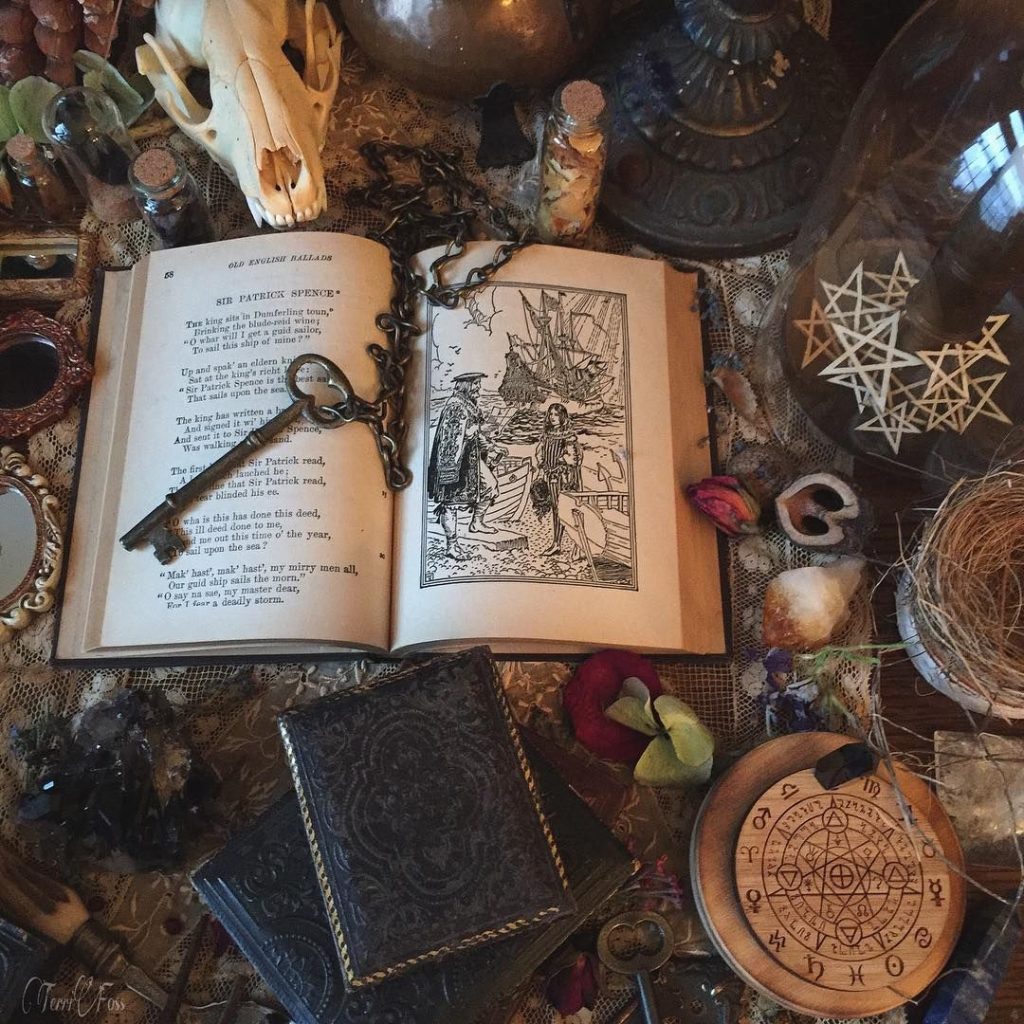Wiccan books have always been a gateway to learn more about Wicca. Wicca, a modern pagan witchcraft religion, has seen a surge in interest and popularity over the past few decades. Central to Wiccan practice is a deep connection with nature, reverence for the divine, and the use of magic. To embark on this enchanting journey and explore the realms of Wicca and wiccan symbols, one must delve into a treasure trove of literature dedicated to its beliefs, rituals, and traditions. In this article, we’ll take you on a journey through the enchanting world of Wiccan books, helping you understand their significance and offering recommendations for both beginners and experienced practitioners.
Origins of Wiccan Books
Wiccan books, like the religion of Wicca itself, have a relatively recent origin compared to many other spiritual traditions. Wicca, as a modern pagan witchcraft religion, began to take shape in the mid-20th century. The origins of Wiccan books are closely tied to the emergence of this religious movement.
- Gerald Gardner: Gerald Gardner is often referred to as the “Father of Wicca.” He is credited with popularizing and formalizing Wicca in the 1950s. Gardner wrote several books on witchcraft and Wicca, including “Witchcraft Today” (1954) and “The Meaning of Witchcraft” (1959). These early works played a pivotal role in documenting and sharing the beliefs and practices of the burgeoning Wiccan tradition. Gardner’s books provided insights into Wiccan rituals, folklore, and magical practices like magic rituals.
- Doreen Valiente: Doreen Valiente was a prominent figure in the early Wiccan movement and is often referred to as the “Mother of Modern Witchcraft.” She collaborated with Gardner on some of his books and later authored her own, such as “Witchcraft for Tomorrow” (1978) and “The Rebirth of Witchcraft” (1989). Valiente’s contributions helped shape Wicca and made its teachings more accessible to a wider audience.
- Scott Cunningham and Raymond Buckland: In the late 20th century, authors like Scott Cunningham and Raymond Buckland emerged as influential voices in the world of Wiccan literature. Cunningham’s “Wicca: A Guide for the Solitary Practitioner” (1988) and Buckland’s “The Complete Book of Witchcraft” (1986) are still widely read today. These authors contributed to the spread of Wicca and helped make it more accessible to solitary practitioners.
Wiccan books have continued to evolve and expand over the years. While the earliest works primarily focused on the foundational beliefs and practices of Wicca, subsequent authors have explored various aspects of the tradition. This includes topics such as herbalism, divination, astrology, and the integration of Wiccan principles into daily life.
Today, there is a vast and diverse library of Wiccan books available, catering to practitioners of all levels of experience and interests. The writing and publication of these books continue to be an essential part of the Wiccan tradition, allowing it to thrive and adapt to the needs of its practitioners in the modern world.
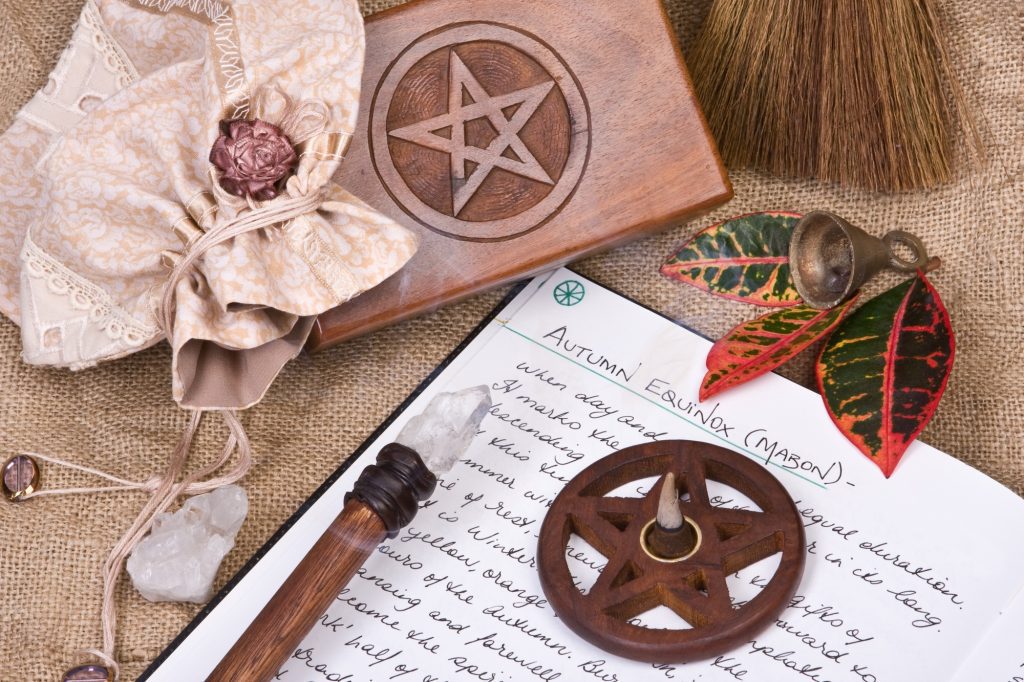
The Rich Diversity of Wiccan Books
The rich diversity of Wiccan books reflects the multifaceted nature of the Wiccan tradition itself. Wicca is a highly individualized and eclectic spiritual path, and this diversity is mirrored in the literature produced by Wiccan authors. Here’s an exploration of the various types of Wiccan books and the topics they cover:
- Introductory Wiccan Books: These books are aimed at newcomers to Wicca and provide a basic overview of its beliefs, dark rituals, and practices. They often include guidance on setting up altars, casting circles, and performing simple spells. Scott Cunningham’s “Wicca: A Guide for the Solitary Practitioner” is a well-known example.
- Advanced Wiccan Books: For those with some experience in Wicca, advanced books delve deeper into the tradition. They explore complex rituals like humiliation rituals, esoteric knowledge, and in-depth magical practices. Titles like “The Witch’s Book of Shadows” by Phyllis Curott fall into this category.
- Wiccan History and Origins: Some Wiccan books focus on the history and origins of the tradition. They may discuss the contributions of key figures like Gerald Gardner and Doreen Valiente or examine the historical roots of Wicca and its connection to older pagan and witchcraft traditions.
- Herbalism and Green Witchcraft: Many Wiccans have a deep connection to nature, and books on herbalism, plant magic, and green witchcraft are popular within the Wiccan community. These texts often include information on the magical properties of plants, as well as instructions for creating herbal remedies and potions.
- Divination and Tarot: Wiccans often use divination tools like tarot cards, runes, and scrying for spiritual insight. Books on divination provide guidance on using these tools effectively and interpreting their symbolism in a Wiccan context.
- Seasonal Celebrations and Sabbats: Wicca places a strong emphasis on celebrating the cycles of nature and the eight sabbats, which mark the changing seasons. Books dedicated to these festivals provide information on their history, rituals, and how to celebrate them.
- Wiccan Ethics and Philosophy: Wicca has a code of ethics known as the Wiccan Rede and the Threefold Law. Books in this category explore Wiccan ethics, philosophy, and the principles of harm none and personal responsibility.
- Wicca and Gender: Some Wiccan authors explore the role of gender in the tradition and how it relates to the worship of the God and Goddess. These books may discuss concepts like the Divine Feminine and Divine Masculine.
- Solitary and Eclectic Wicca: Many Wiccans practice as solitaries or in small, eclectic groups. Books for solitary practitioners offer guidance on adapting Wiccan practices to a solitary setting, while eclectic Wiccan books encourage the integration of various spiritual practices into one’s Wiccan path.
- Wicca in the Modern World: As Wicca evolves, books are being written to address its place in the modern world. This includes discussions on social issues, environmental concerns, and how Wicca can be a source of empowerment and healing in today’s society.
In conclusion, the world of Wiccan books is as diverse as the practitioners themselves. Whether you’re looking for an introduction to Wicca, seeking to deepen your understanding, or exploring specialized topics within the tradition, there’s a wide range of literature to choose from. These books serve as guides, companions, and sources of inspiration for Wiccans on their spiritual journeys.
The Importance of Wiccan Books
The importance of Wiccan books cannot be overstated within the Wiccan and broader pagan communities. These books play a multifaceted and vital role in the practice and propagation of the Wiccan tradition:
- Education: Wiccan books serve as primary educational resources for those interested in learning about Wicca. They provide a structured and organized way to study its beliefs, rituals, and practices, making it accessible to both beginners and experienced practitioners. Without these written guides, passing on Wiccan knowledge would be much more challenging.
- Preservation of Knowledge: Wicca is an oral tradition to some extent, with knowledge being passed down through initiations and personal teachings. However, written texts help preserve the wisdom and teachings of Wiccan elders and practitioners for future generations. They prevent the loss of essential knowledge due to the passage of time or the changing dynamics of Wiccan communities.
- Standardization: Wiccan books help standardize practices and terminology within the tradition. They provide a common ground for Wiccans to refer to and ensure that key rituals, ethics, and beliefs are communicated consistently across different covens and groups.
- Accessibility: Not everyone has access to a physical coven or teacher when they first become interested in Wicca. Books offer an accessible way for individuals to explore the tradition, especially if they are solitary practitioners or live in areas with limited resources for learning about Wicca.
- Personal Growth: Beyond the basics, Wiccan books often delve into topics related to personal and spiritual growth. They offer guidance on self-discovery, empowerment, and living in harmony with the natural world. This aspect of Wiccan literature can be transformative for readers.
- Diverse Perspectives: The variety of Wiccan books available allows individuals to explore different branches and interpretations of Wicca. Whether one is interested in Traditional Wicca, Eclectic Wicca, Dianic Wicca, or any other tradition, there are books available that cater to those specific interests. This diversity encourages a rich tapestry of beliefs and practices within the larger Wiccan community.
- Inspiration and Creativity: Wiccan books often inspire practitioners to develop their unique rituals like “new moon rituals“, healing spells, and practices. By offering a foundation and framework, these books encourage creativity and innovation within the tradition.
- Community Building: Shared reading experiences can foster a sense of community among Wiccans. Discussions, book clubs, and study groups centered around Wiccan literature provide opportunities for like-minded individuals to connect, learn from each other, and deepen their understanding of the tradition.
- Cultural Understanding: Wiccan books can also be valuable tools for outsiders and researchers seeking to understand Wicca and modern pagan practices. They provide insight into the beliefs, customs, and rituals of this diverse and often misunderstood spiritual path.
In summary, Wiccan books serve as foundational resources that not only educate but also inspire, connect, and empower Wiccans and those interested in the tradition. They play a crucial role in preserving, standardizing, and sharing the rich tapestry of beliefs and practices that make up the world of Wicca.
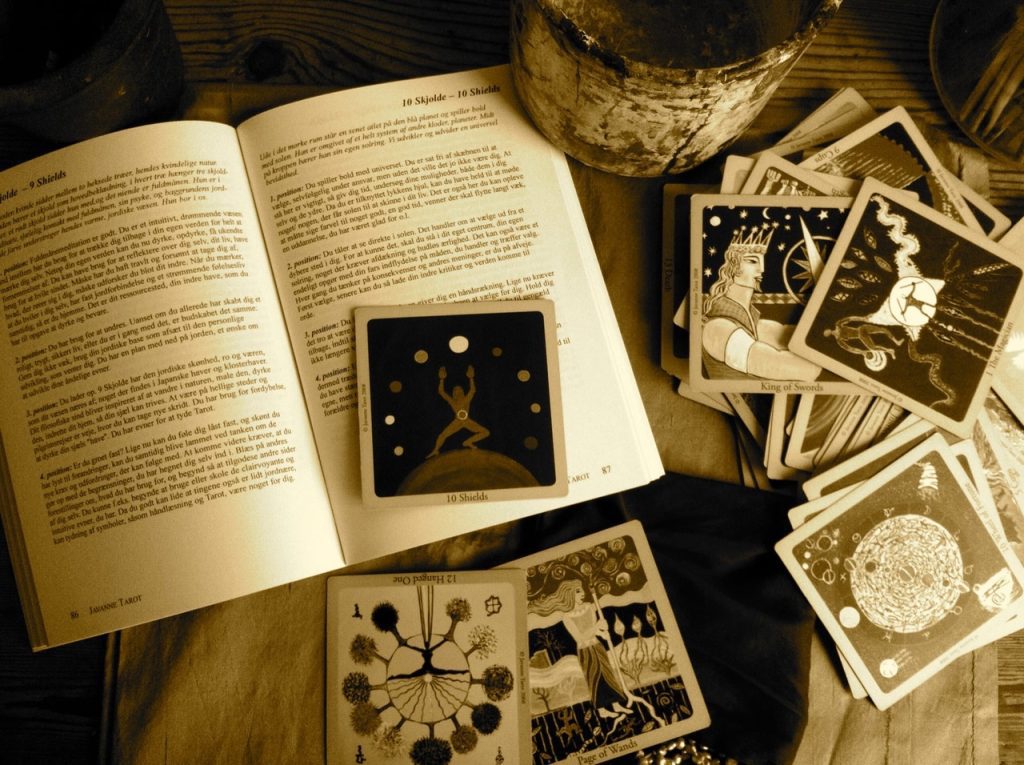
Choosing Wiccan Books
Choosing Wiccan books is an important and personal process, as there is a vast and diverse range of literature available within the Wiccan and pagan communities. Making informed choices about which books to read is essential for both beginners and experienced practitioners. Here are some factors to consider when selecting Wiccan books:
- Experience Level: Your level of experience with Wicca and witchcraft will significantly influence your book selection. If you’re a beginner, start with introductory texts that provide a solid foundation. More advanced practitioners may seek specialized or advanced books to deepen their knowledge and practice.
- Author’s Reputation: Research the author’s background and reputation within the Wiccan community. Established authors who have experience and are well-respected within the community are often reliable sources of information. Look for authors who are transparent about their credentials and experiences.
- Book Reviews and Recommendations: Read reviews and seek recommendations from fellow practitioners, either in person or on reputable online forums and communities. Other people’s experiences and insights can help you identify books that align with your interests and goals.
- Branch or Tradition: Consider the specific branch or tradition of Wicca that you are interested in. Wicca encompasses various traditions such as Gardnerian, Alexandrian, Dianic, and eclectic practices. Different books may focus on specific traditions or offer a more eclectic approach. Ensure that the book aligns with your chosen path or is adaptable to your practice.
- Topic of Interest: Wiccan literature covers a wide range of topics, including spells like money spells, rituals, history, divination, herbalism, and more. Identify your areas of interest and choose books that cater to those interests. If you’re curious about a particular aspect of Wicca, select books that provide in-depth coverage of that topic.
- Balance of Practical and Theoretical Content: Consider the balance between theoretical knowledge and practical guidance in the book. Some texts are more scholarly and provide historical and philosophical insights, while others are more hands-on and offer step-by-step instructions for rituals and white magic spells. Choose books that align with your learning style and objectives.
- Ethical Considerations: Pay attention to the ethical and moral perspectives presented in the book. Wicca emphasizes the ethical principle of “harm none.” Ensure that the book’s teachings align with your personal ethical values.
- Accessibility: Evaluate the accessibility of the book’s content. Is it written in a way that you can easily understand and relate to? Clear, concise, and well-structured writing can greatly enhance your learning experience.
- Publication Date: While older books often provide valuable historical context, the field of Wicca has evolved, and newer books may incorporate contemporary perspectives and practices. Consider whether you want to explore classic texts or more recent publications.
- Personal Intuition: Trust your intuition when choosing Wiccan books. If a particular book resonates with you or feels right, it may be the perfect choice for your current stage of learning and practice.
Remember that building a personal library of Wiccan books can be a lifelong journey. It’s perfectly acceptable to start with a few foundational texts and gradually expand your collection as you deepen your understanding and explore different aspects of Wicca. Be open to revisiting books you’ve read before, as your perspective and practice may evolve over time, leading to new insights and interpretations.
10 Best Recommended Wiccan Books
Recommended Wiccan books can serve as invaluable resources for both newcomers and experienced practitioners, offering insights into the diverse facets of the Wiccan tradition. Here’s a closer look at some highly regarded Wiccan books and what makes them noteworthy:
- “Wicca: A Guide for the Solitary Practitioner” by Scott Cunningham: This classic book is often recommended for beginners due to its accessible and welcoming style. Cunningham provides a comprehensive introduction to Wiccan beliefs, rituals including “demystifying satanic rituals“, and practices, emphasizing the importance of personal spirituality and connection with nature. It’s an excellent starting point for those new to Wicca.
- “The Witch’s Book of Shadows” by Phyllis Curott: Phyllis Curott’s work offers a modern perspective on Wicca, blending personal experiences with practical advice for contemporary witches. It’s praised for its authenticity and its ability to resonate with modern readers seeking to connect with the divine in their everyday lives.
- “To Ride a Silver Broomstick” by Silver RavenWolf: This book is a comprehensive guide aimed at both beginners and those looking to deepen their practice. Silver RavenWolf covers a wide range of topics, including rituals, spells for happines, and ethics, in a friendly and down-to-earth style. It’s particularly popular among younger practitioners.
- “The Complete Book of Witchcraft” by Raymond Buckland: Raymond Buckland’s work is highly regarded for its systematic approach to teaching witchcraft and Wicca. It covers a broad range of topics, from history and philosophy to practical rituals and spellwork. This book is often recommended for its comprehensive nature.
- “Witchcraft Today” by Gerald Gardner: For those interested in the history and origins of Wicca, Gerald Gardner’s book is a must-read. As one of the founders of modern Wicca, Gardner provides valuable insights into the development of the Wiccan movement and the practices associated with it. “Witchcraft Today” remains a seminal work in Wiccan literature.
- “The Spiral Dance” by Starhawk: Starhawk’s book is celebrated for its feminist and eco-spiritual perspectives within the Wiccan tradition. It explores the connections between spirituality, feminism, and activism while offering practical guidance on Wiccan rituals and magic. “The Spiral Dance” has had a profound impact on the contemporary pagan and feminist movements.
- “Aradia, or the Gospel of the Witches” by Charles G. Leland: This classic work is an essential read for those interested in the historical and folkloric roots of Wicca. Leland’s book presents the teachings and practices of a purported Italian witch named Aradia and has influenced modern Wiccan beliefs and rituals.( it may have some Cord Cutting Rituals)
- “The Modern Witchcraft Spell Book” by Skye Alexander: Skye Alexander’s book is a practical guide to spellcraft, making it an excellent resource for those interested in the magical aspects of Wicca. It provides a wide variety of spells for different purposes, along with guidance on crafting your spells.
- “The Witch’s Book of Shadows” by Phyllis Curott: Phyllis Curott’s book offers a personal and contemporary perspective on Wicca, blending her experiences with practical advice for modern witches. It’s praised for its authenticity and its ability to resonate with those seeking to connect with the divine in everyday life.
- “Buckland’s Complete Book of Witchcraft” by Raymond Buckland: This comprehensive guide is often recommended for those interested in the practice of witchcraft within the Wiccan tradition. It covers a wide range of topics, including simple morning rituals, magical tools and magic symbols, and spellcasting, making it a valuable resource for both beginners and experienced practitioners.
These recommended Wiccan books reflect the diversity of the tradition, offering a wealth of knowledge, insights, and practical guidance. While these texts can be a great starting point, it’s essential to remember that Wicca is an individualized and eclectic tradition, and personal exploration and adaptation are encouraged as you deepen your practice.
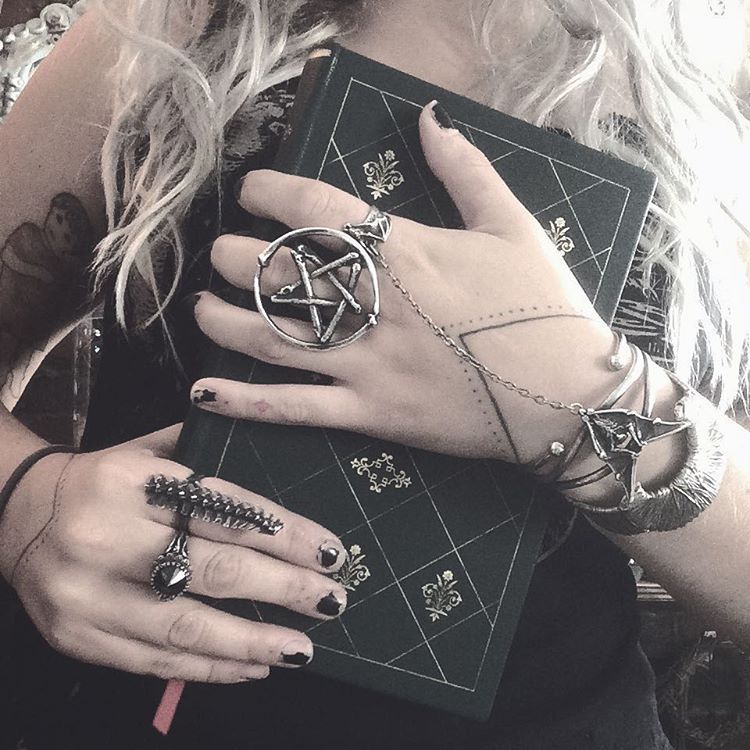
Conclusion
Wiccan books are gateways to the mystical and magical world of Wicca. They offer knowledge, guidance, and a sense of community to those who seek to explore this ancient yet modern spiritual path. Whether you’re a beginner or a seasoned practitioner, there’s a wealth of literature waiting to illuminate your journey. So, grab a Wiccan book, immerse yourself in its wisdom, and let the magic of Wicca enrich your life.

